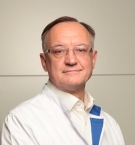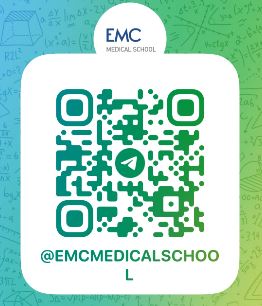Alexey Krivoshapkin

- SCHOOL HEADS
MD, professor, neurosurgeon.
Dr Krivoshapkin graduated from Novosibirsk State Medical University (NSMU). He completed further education course in neurological surgery at Royal London Hospital. In 1997, Alexey Krivoshapkin passed an intercollegiate examination in Neurosurgery (highest level exam) in Birmingham and was recognized as a neurosurgeon by four Royal Colleges of the United Kingdom. He was registered in the List of Registered Medical Practitioners by the General Medical Council in the UK.
Dr Krivoshapkin’s research activities are focused on the development of the most important fields of neurosurgery and the implementation of high-tech interventions on brain structures and vessels.
He developed a method for microsurgical therapy of cerebral arteriorvenous malformations and was granted a patent for it. He proposed original methods of cerebral angiospasm subarachnoid hemorrhage treatment, developed a method of differential diagnosis of cerebral edema in neurosurgical patients. His technique of endovascular treatment of ruptured internal carotid arteries in cerebral vasospasm, approved by the Federal Service on Surveillance in Healthcare and Social Development of the Russian Federation, helped to significantly reduce mortality due to this disease.
For the first time in Siberia, Dr Krivoshapkin used neuronavigation techniques in surgical operations on brain structures. He proved their effectiveness for the radical removal of malignant tumors of the brain. Together with scientists from the Institute of Catalysis of the Siberian Branch of the Russian Academy of Sciences, he developed a domestic biological adhesive Sulfakrilat which is successfully used in different areas of neurosurgery. A technology was developed for endovascular embolization of brain arteriovenous malformations and vascular brain tumors using adhesive compositions based on Sulfakrilat.
Professor Krivoshapkin is particularly interested in skull base surgery. For the first time in the Siberian Federal District, significant experience has been accumulated in pituitary microsurgery and endoscopic surgery, which has enabled the development of a technique for micro-surgical transnasal and transsphenoidal removal of lesions of the sellar region under neuronavigation control.
Dr Krivoshapkin pays particular attention to the issue of neurosurgical care for children with neuro-oncological diseases and with complex congenital cerebral vascular pathologies. For the first time in the Siberian region, at the Federal State Institution Meshalkin Novosibirsk Research Institute of Circulation Pathology of the Ministry of Healthcare and Social Development of the Russian Federation, endovascular operations were successfully performed on infants in their first months of life.
In Siberia he is the head of a new area of surgical correction of congenital and acquired cerebral vascular pathologies; he is promoting the implementation of minimally invasive spine surgery, and developing and introducing the concept of a holistic approach to the issue of surgical treatment and full rehabilitation of neurosurgical patients.
Dr Krivoshapkin has 191 scientific papers published, including 5 monographs and 1 set of guidelines. He is the author of 5 teaching and methodical manuals, has a copyright certificate and 12 patents for inventions, he has developed 5 medical techniques approved by the Federal Service on Surveillance in Healthcare and Social Development. After being approved as a professor, Dr Krivoshapkin had 108 papers published in both national and foreign resources, including one set of guidelines and 10 patents for inventions. Dr Krivoshapkin was a thesis adviser in 7 candidate's theses presented successfully (6 of them were presented after he had been approved as a professor).
He is a member of the Scientific Council of the Federal State Institution Meshalkin Novosibirsk Research Institute of Circulation Pathology of the Ministry of Healthcare and Social Development of the Russian Federation and of the specialized dissertation council D 208.064.01 of the Federal State Institution Novosibirsk Scientific and Research Institute of Traumatology and Orthopedics of the Ministry of Healthcare. He is the Chairman of the problem commission Neurosurgery and Oncology of the Federal State Institution Meshalkin Novosibirsk Research Institute of Circulation Pathology of the Ministry of Healthcare and Social Development of Russia.
Dr Krivoshapkin is an organizer of regional neuro-oncological conferences held in Siberia and the Far East on a regular basis. He is the head of research projects carried out jointly with research institutes of the Siberian Branch of the Russian Academy of Medical Sciences and Siberian Branch of the Russian Academy of Sciences: Malignant human brain gliomas, A hemodynamic model of the human brain, Cerebral ischemic preconditioning.
At the IV Congress of Neurosurgeons of Russia, Dr Krivoshapkin was elected a member of the Board of the Association of Neurosurgeons of Russia, and at the V Congress he was elected the first Vice President of the Association of Neurosurgeons of Russia. At the IX World Congress of Neurological Surgeons in Boston he was elected a member of the Neurotrauma Committee of the World Federation of Neurosurgical Societies.
Dr Krivoshapkin is a member of the European Association of Neurosurgical Societies. He is a member of editorial boards of the journals Neurosurgery (Russia); the Journal of Neurology, Neurosurgery, and Psychiatry, the Newsletter of the Siberian Branch of the Russian Academy of Medical Sciences; Neurosurgery and World Neurosurgery (United States).
Dr Krivoshapkin has worldwide recognition. Dr Krivoshapkin has been invited to international forums and congresses as a speaker and moderator. He is the head researcher of four major international multi-center studies.






